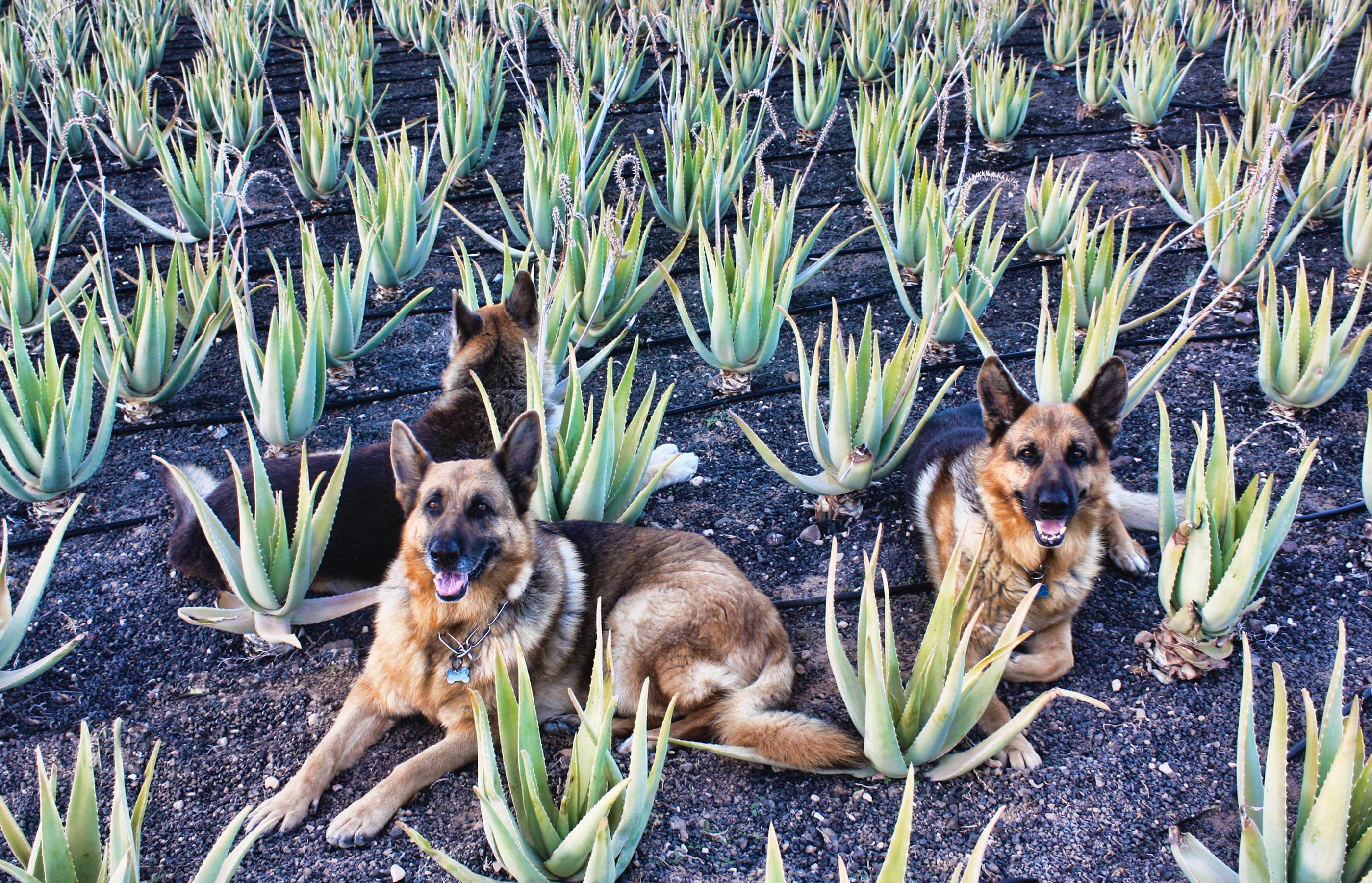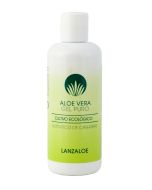Local Storage seems to be disabled in your browser.
For the best experience on our site, be sure to turn on Local Storage in your browser.
Aloe Vera for Dogs: an enhancer of the immune system

Aloe is best used for digestive, skin and lymph problems. In the case of dogs can also be used in the same way.
In what cases can Aloe vera help our dogs?
- Aloe vera is excellent for dogs with problems from acidic stomachs (acid reflux as known to humans).
- Soothes the skin and soften it, helping treat minor scrapes, burns and other wounds your dog may encounter.
- Fleabites, sunburns and poison ivy harm can often be treated with Aloe due to its cooling effects.
- Aloe vera is believed to be one of the better plants for relieving acute arthritic pain in older dogs due to gout (metabolic disease).
- Relieves bladder sensitivity and irritation when the urine has a high acid count.
- For dogs who’ve had any kind of surgery, application of Aloe vera Pure Gel can work wonders by reducing a great deal of irritation and inflammation.
Beyond all these already known effects, a research from the university of Hatay in Turkey recently demonstrated that the Aloe vera juice has a direct effect increasing the immune response in immunosuppressed subjects.
The research was realized observing and documenting the reaction of the immune system after subninistrating Aloe vera to a group of dogs recently submitted to a Polyvalent vaccine.
As we all know vaccination against several pathogens using various type of vaccines have commonly been used in veterinary and human medicine. Dogs are routinely vaccinated against various diseases including canine distemper virus (CDV), canine adenovirus, canine parainfluenza and canine parvovirus with standard vaccines and severe diseases do not generally occur.
Eventhough, vaccination of dogs lead to alterations or adverse effect in immune parameters in the postvaccinal period. Vaccination and procedural manipulations (e.g. injections) itself represents a stress on the immune system of dogs as physical and psychologic stresses such as handling, crowding, fear etc. may affect an animal’s immune response.
Recently, there has been an increasing interest of using complementary and alternative medicine. Of the more than 360 Aloe species known, Aloe Barbadensis Miller is the most widely used both commercially and for its therapeutic properties. Some plant polysaccharides are well known to possess immunoregulatory and/or immunostimulatory effects. In these studies, it was demonstrated that either particulate or soluble forms, exhibited strong immunostimulating and/or immunomodulatory properties in all tested animal species. Administration of Aloe vera has been universally demonstrated to result in marked increase in phagocytic and proliferative activity of the reticuloendothelial system.
It is demonstrated that immunomodulating and/or immunostimulating effects of these products are dependent on the activation of the innate immune cells, synthesis and release of cytokines, generation of enhanced cell-mediated responses, and induction of nitric oxide production.
Besides the role in cellular immunity, researchers also found that Aloe vera induces antibody responses. Furthermore, the immunomodulators were found to exert a restorative effect on the values of reduced cell populations (T and B) such as suppression and/or deficiencies of the immune system in the host organism.
The research is about polyvalent vaccine immunodepressed dogs, but serves to clearly demonstrate that Aloe vera has a direct effect on the dog's immune system and antibodies.
It can be used after a surgery or a wound, supporting the traditional medicine's methods in curing inner diseases, or cyclically (two/four times a year) to enhance and empower the immune system.
Source:
(Kafkas Univ Vet Fak Derg RESEARCH ARTICLE 16 (3): 405-412, 2010)


